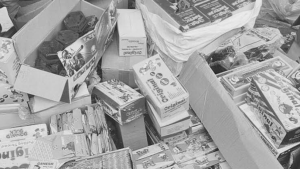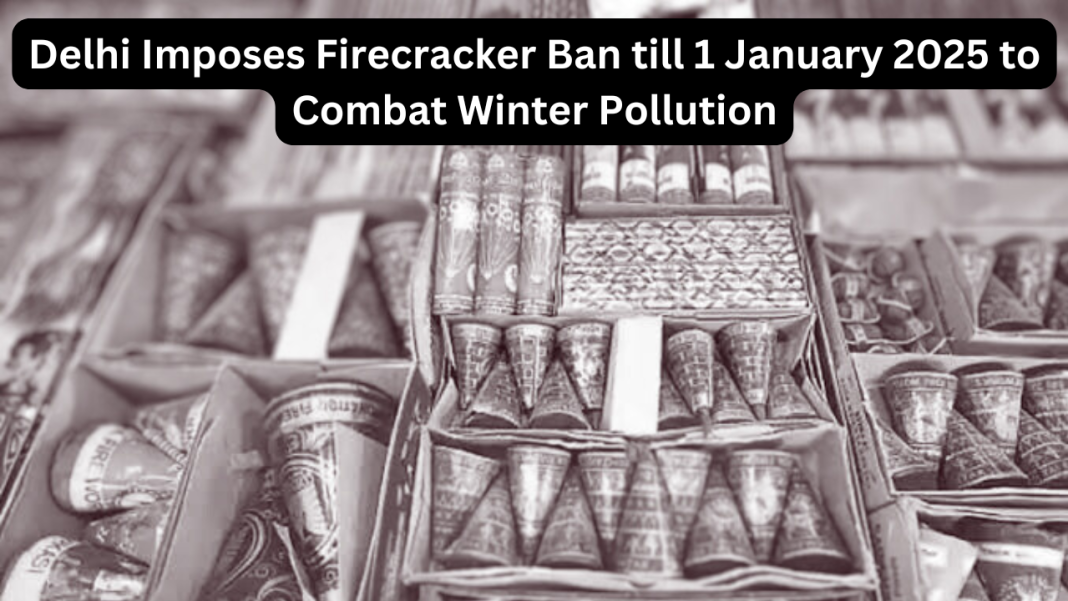Digital News Desk:
As part of its ongoing battle against hazardous air pollution, the Delhi government has extended its ban on firecrackers until January 1, 2025. The decision comes amid growing concerns over deteriorating air quality during the winter months, a problem that is exacerbated by various factors, including the widespread use of firecrackers during festive celebrations such as Diwali. This move, aimed at protecting public health and the environment, marks a significant step in Delhi’s ongoing efforts to curb pollution and address the alarming rise in respiratory illnesses during this season.
The Need for the Ban
Delhi has been grappling with severe air pollution for years, particularly during the winter months when a combination of meteorological conditions and human activities leads to a sharp decline in air quality. The burning of firecrackers during Diwali and other celebrations contributes significantly to this problem, resulting in dangerous spikes in particulate matter (PM2.5 and PM10) levels. These particles, which can penetrate deep into the lungs, are known to cause serious health issues such as asthma, bronchitis, and other respiratory diseases.
In the days following Diwali, Delhi’s Air Quality Index (AQI) frequently enters the “severe” or “hazardous” categories, often far exceeding the limits recommended by the World Health Organization (WHO). In past years, post-Diwali pollution levels have been known to rise more than 10 times the safe limits, leading to severe public health crises. Given the historical trend and the expected pollution levels this winter, the Delhi government decided to impose a blanket ban on firecrackers through January 2025.
Scope and Enforcement of the Ban
The firecracker ban, which covers the entire national capital region (NCR), is comprehensive, prohibiting the production, sale, and use of all kinds of firecrackers. The Delhi Pollution Control Committee (DPCC) has been tasked with monitoring the enforcement of the ban, alongside the Delhi Police and other civic authorities. This year, stricter enforcement measures have been put in place, including more frequent raids on shops selling firecrackers and increased penalties for violators.
Fines for storing or selling firecrackers can range from Rs 10,000 to Rs 1 lakh, while individuals caught using firecrackers face fines up to Rs 5,000. Repeat offenders may also face legal consequences, including jail time. Authorities have already seized large quantities of illegal firecrackers and are conducting ongoing checks to ensure compliance with the ban.

Legal Challenges and Alternatives
While the ban has been praised by environmentalists and health experts, it has faced opposition from some groups. Firecracker manufacturers and traders, particularly those from Sivakasi in Tamil Nadu—a hub for firecracker production—have voiced concerns over the economic impact of the ban. Many traders argue that the blanket prohibition disproportionately affects their livelihoods, especially during the peak festive season when sales are at their highest.
In response to these concerns, some groups have advocated for the use of “green crackers,” which are designed to produce less smoke and pollution compared to traditional firecrackers. Green crackers have been promoted in previous years as a compromise between festive traditions and environmental protection. However, the Delhi government, citing the difficulty of enforcing the distinction between regular and green crackers, opted for a complete ban this year to prevent any loopholes or misuse.
Public Reaction
Public opinion on the firecracker ban is mixed. A significant portion of Delhi’s residents support the government’s decision, recognizing the health risks posed by the drastic increase in pollution during the festival season. Many have expressed concerns over the health impacts of poor air quality on vulnerable populations, particularly children, the elderly, and those with pre-existing respiratory conditions. Several studies have shown that air pollution is linked to a wide range of health issues, from respiratory problems to heart disease, and even premature death.
However, others view the ban as an infringement on cultural and religious practices. Diwali, the festival of lights, traditionally involves the bursting of firecrackers as part of the celebrations. Some critics argue that the government’s decision restricts these customs and that the focus should instead be on addressing other sources of pollution, such as industrial emissions, vehicular pollution, and crop stubble burning in neighboring states.
Addressing Pollution Through GRAP
In addition to the firecracker ban, Delhi has implemented the Graded Response Action Plan (GRAP), which lays out specific measures to reduce pollution based on air quality levels. GRAP includes a range of actions, from curbing construction activities and controlling vehicular emissions to imposing emergency measures such as school closures and restrictions on the use of private vehicles during periods of severe pollution.
GRAP is part of a broader strategy to tackle the root causes of pollution in Delhi, including emissions from factories, vehicles, and crop burning. However, despite these measures, the use of firecrackers remains one of the most visible and preventable causes of the pollution spikes seen during the Diwali season. By extending the firecracker ban until January 2025, the Delhi government hopes to mitigate the worst effects of winter pollution.
Conclusion
Delhi’s firecracker ban through January 2025 is a critical step in the city’s ongoing battle against air pollution. While the ban has sparked debates about cultural traditions and economic consequences, it is a necessary measure to protect public health and improve air quality during a time when pollution levels typically skyrocket. As the ban is enforced and public awareness campaigns continue, the focus will remain on reducing pollution and safeguarding the health of Delhi’s residents during the upcoming winter months.
You May Also Read : Delhi’s Push to Remove Over-Aged Vehicles to Combat Pollution








